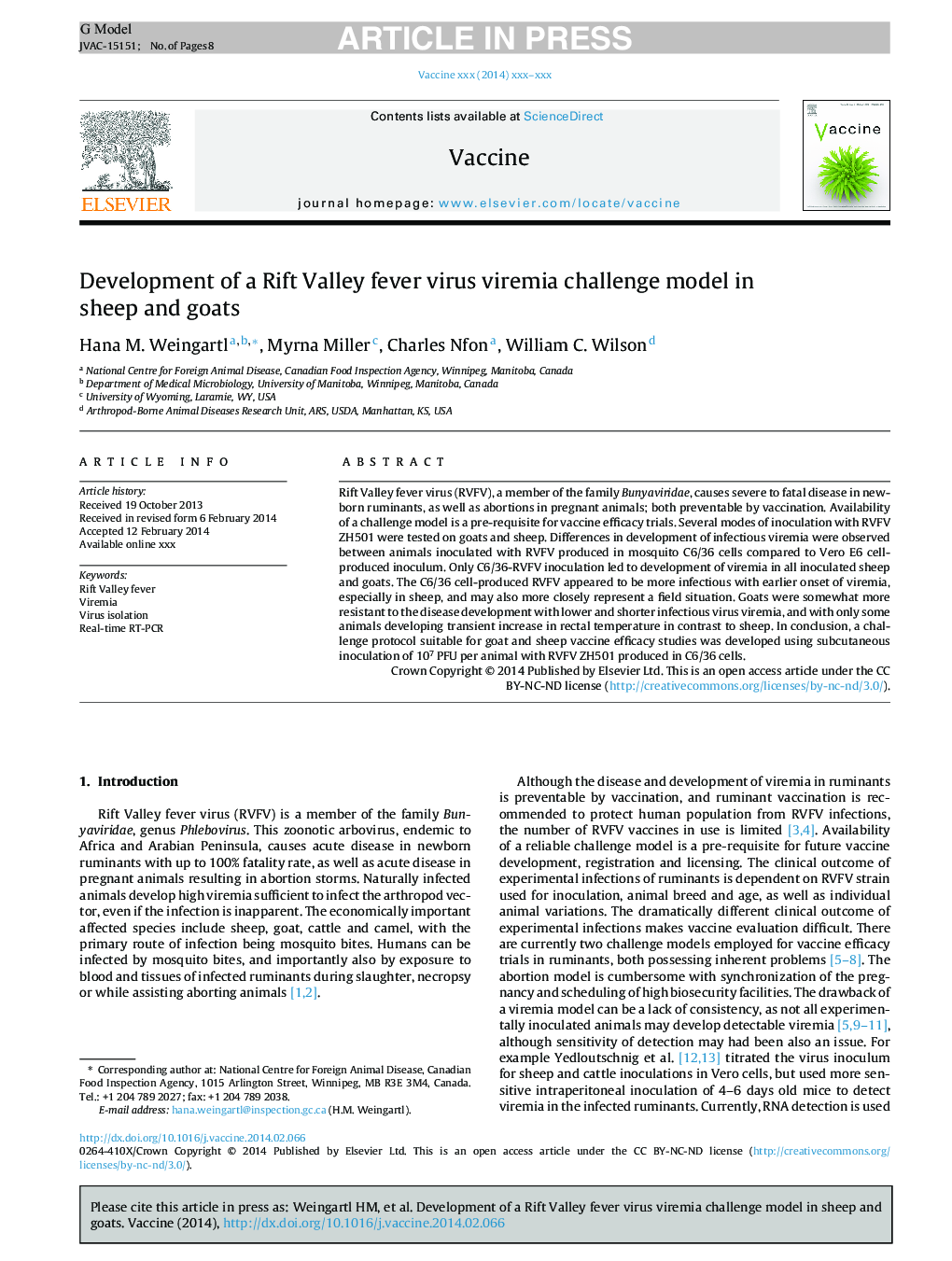| Article ID | Journal | Published Year | Pages | File Type |
|---|---|---|---|---|
| 10966657 | Vaccine | 2014 | 8 Pages |
Abstract
Rift Valley fever virus (RVFV), a member of the family Bunyaviridae, causes severe to fatal disease in newborn ruminants, as well as abortions in pregnant animals; both preventable by vaccination. Availability of a challenge model is a pre-requisite for vaccine efficacy trials. Several modes of inoculation with RVFV ZH501 were tested on goats and sheep. Differences in development of infectious viremia were observed between animals inoculated with RVFV produced in mosquito C6/36 cells compared to Vero E6 cell-produced inoculum. Only C6/36-RVFV inoculation led to development of viremia in all inoculated sheep and goats. The C6/36 cell-produced RVFV appeared to be more infectious with earlier onset of viremia, especially in sheep, and may also more closely represent a field situation. Goats were somewhat more resistant to the disease development with lower and shorter infectious virus viremia, and with only some animals developing transient increase in rectal temperature in contrast to sheep. In conclusion, a challenge protocol suitable for goat and sheep vaccine efficacy studies was developed using subcutaneous inoculation of 107Â PFU per animal with RVFV ZH501 produced in C6/36 cells.
Related Topics
Life Sciences
Immunology and Microbiology
Immunology
Authors
Hana M. Weingartl, Myrna Miller, Charles Nfon, William C. Wilson,
